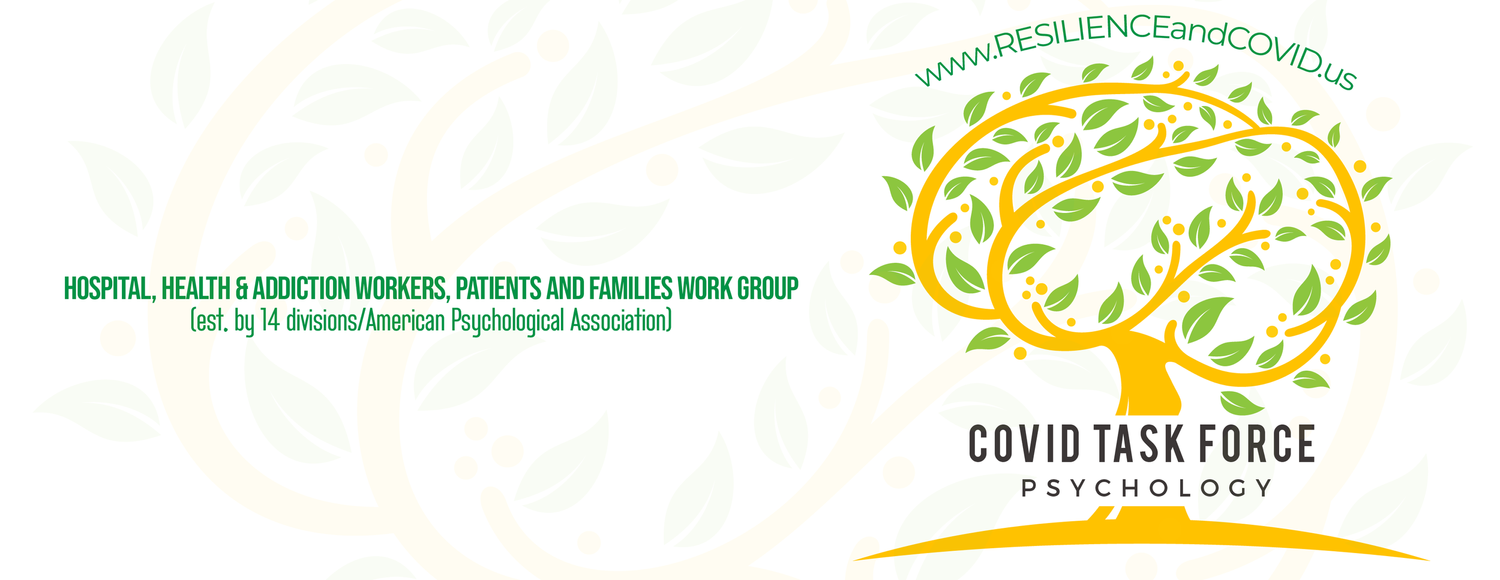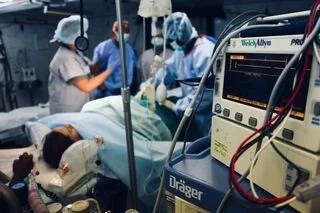Making an Emotional Recovery Together In the COVID-19 ICU
How patients and their families are coping during the pandemic.
This post is Part 2 of a series on ICU trauma and how to cope.
Read Part 1 here: The Psychological Trauma of Having a Loved One in the ICU, by Maureen O'Reilly-Landry, Ph.D.
Read Part 3 here: Managing Emotional Distress in the Hospital and ICU by Ethan Lester, Ph.D.
Read Part 4 here: What Can I Do if My Family Member is in the COVID ICU? by Irina Wen, Ph.D.
This post describes a program created prior to COVID that has been helping ICU patients and their families to cope.
The symptoms of COVID-19 are often serious and can produce lasting physical and psychological impact. For those patients hospitalized, more than half of them require assistance with oxygen due to difficulties breathing, and those who continue to decline require admission to an intensive care unit (ICU).
Critical care hospitalizations are known to produce heightened emotional distress (depression, anxiety, post-traumatic stress) in both patients and families (described as post-intensive care syndrome); and may persist long after ICU discharge.
Source: Richard Catabay/Unsplash
To complicate matters, we are battling the pandemic on a relational/interpersonal front as well. The COVID-19 pandemic has drastically shifted the landscape of inpatient support such that visitations, “non-essential services” (often psychosocial/spiritual in nature), and community healing have been stymied—in some cases entirely.
Relationship dynamics such as spousal discord or family of origin issues can also become magnified in times of high stress and trauma—defying one’s expectations that family and friends might “come together” during a time like this.
The results of these psychosocial stressors produce detrimental psychological complications, including chronic emotional distress, as well as complicated experiences of survivors’ guilt, separation, and isolation.
The emotional toll may be more severe for COVID-19 patients and their family members due to the uncertainty of illness progression after diagnosis, the lack of curative interventions, and the rapid discharge due to inadequate medical resources. But the greatest strain and a trauma unto itself is the restrictions placed on patient/family contact during hospitalization and beyond,
So, what can we do?
In conjunction with the Neurosciences ICU at Massachusetts General Hospital/Harvard Medical School (MGH/HMS); the Integrated Brain Health Clinical and Research Program (IBHCRP); has spent the past six years studying the longitudinal trajectory of emotional distress after ICU hospitalization and understanding resiliency factors that can be targeted to prevent it from becoming chronic.
We developed “Recovering Together” (RT), the first evidence-based resiliency program designed to prevent chronic emotional distress in patients and families following an acute illness and ICU hospitalization.
Recovering Together (RT) effectively teaches individuals and families the necessary skills to navigate traumatic and uncertain situations like the COVID-19 pandemic.
We developed RT by combining clinical research with feedback from patients in the ICU, their families and their medical providers.
RT has six sessions and has flexibility for secure virtual delivery. The key RT skills to improve emotional well-being include:
Mindfulness: the ability to stay present and defer judgment in the face of adversity.
Coping: the application of strategies to effectively manage stress.
Social Support: empathic interpersonal interactions in response to functional needs
Self-Efficacy: perceived ability to adaptation under adversity
Positive Family Interactions: designed to increase interpersonal bonds even when practicing social distancing.
Prior to the pandemic, we conducted two clinical trials and found that patients and families are satisfied with the program and experience dramatic decrease in emotional distress (depression, anxiety and post-traumatic stress).
Those who receive only educational information (more than most patients and families receive under standard of care) experience gradual increase in emotional distress symptoms over time.
The program has an accompanying web-based application with the program skills and exercises for easy access and practice.
The program can bring patients and families together virtually, who must maintain physical distance under the current circumstances.
Through rigorous clinical research that delivers meaningful change, we aim to bring together patients and families in ways in-person treatments are currently unable. Future funding to test the efficacy of this work is currently under review.
We believe that these skills, although not COVID-19-specific, can help address the gap in care that patients and families are needing during this incredibly trying time.
In the Tips Sheet, you will find some of these tips from our program for managing emotional distress and increasing resiliency.
‘Recovering Together’ is possible during an event like a global pandemic. With the right tools and resources and by looking out for one another during critical phases of care, we can be more resilient and possibly prevent emotional distress from occurring.
Read article on Psychology Today: https://www.psychologytoday.com/us/blog/psychological-trauma-coping-and-resilience/202012/making-emotional-recovery-together-in-the
References

